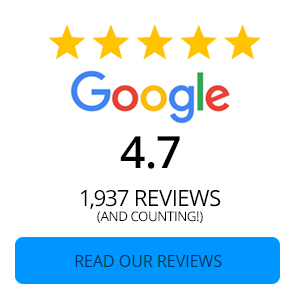Phishing scams usually have several features in common. The scammers pretend to represent a trusted institution, such as a bank or government agency, the police, or someone you know. They claim that there's a problem or that they need to fix something for you. And they demand sensitive information, like social security or bank account numbers, or money.
Because phishing scams are often very similar, it's not hard to learn to protect yourself from them. Here are four examples of recent phishing scams and the lessons they teach about protecting yourself from scammers.
Scam #1 Police Phone
In this scam, someone calls you or texts you and pretends to be a police officer. The number they are calling from is often a spoofed number for the actual police department in your area, so it's easy to fall for it. The scammer tells you that you owe money, and if you don't pay, then you will be arrested. He then asks for payment via a gift card, or for information about your bank account or credit cards.
The way to protect yourself from this scam is to hang up without sharing any information. If you're not sure whether the person who called you was from the police department, contact the police department using one of the methods listed on its website and ask if someone called you. Don't use any number given to you by the person who called, because that number could lead right back to a scammer.
Scam #2 Fake Customer Service Twitter Accounts
CNN Money reports that scammers set up Twitter accounts that look similar to the customer service accounts of banks and other companies. When they notice anyone mentioning a customer service complaint on Twitter, they ask for the user's account information or give him a link to a phishing website that asks for personal data.
To protect yourself from this scam, don't share any sensitive information on social media sites. When you need help from a customer service department, call the company directly using the number listed on its website or on your receipt. Another safe option is to visit a store or bank branch in person.
Scam #3 Health Insurance Exchange Email
According to Healthcare.gov, scammers send emails that appear to come from the health insurance exchange website and that ask the recipients to verify their tax information. The emails contain links to a phishing site that ask for bank account information, Social Security Numbers, and other data.
Protect yourself by not clicking on links in emails that ask for tax or insurance information, even if they look like they're from the health insurance exchange site. If you think an email might be from Healthcare.gov, don't respond to it. Instead, type "Healthcare.gov" into your web browser and log in. There, you can view your notifications and provide any information you need to.
Scam #4 "Spear Phishing"
Spear phishing scams are more targeted than regular phishing scams. As 9 News notes, scammers email you pretending to be someone you know, like a friend, a coworker, or your work supervisor. They ask you to respond to the email with personal information or to transfer money.
Scam #5 Fraudulent Text Messages: There is currently a fraudulent text message circulating, which is an attempt at stealing your account information. The text message says that your debit card has been SUSPENDED and must be re-activated. It then requests that you call a number and give your account information to re-activate. Please DO NOT respond to this message or call the number listed. This text message is a scam, remember that Coosa Valley Credit Union will never request account information via phone or text message. If you did call the number and gave out your account information, please report it and call us immediately.
As with the other scams, the key to protecting yourself is to check with the source the email is supposed to be from. Call the person and ask if he sent the email. Even if the request really is from someone you know and not a scammer, you want to use a more secure method than email to send sensitive information. Some options are to talk on the phone, send a letter, or meet in person.
Find out more about protecting yourself from fraud at the Coosa Valley Credit Union Learning Center.
